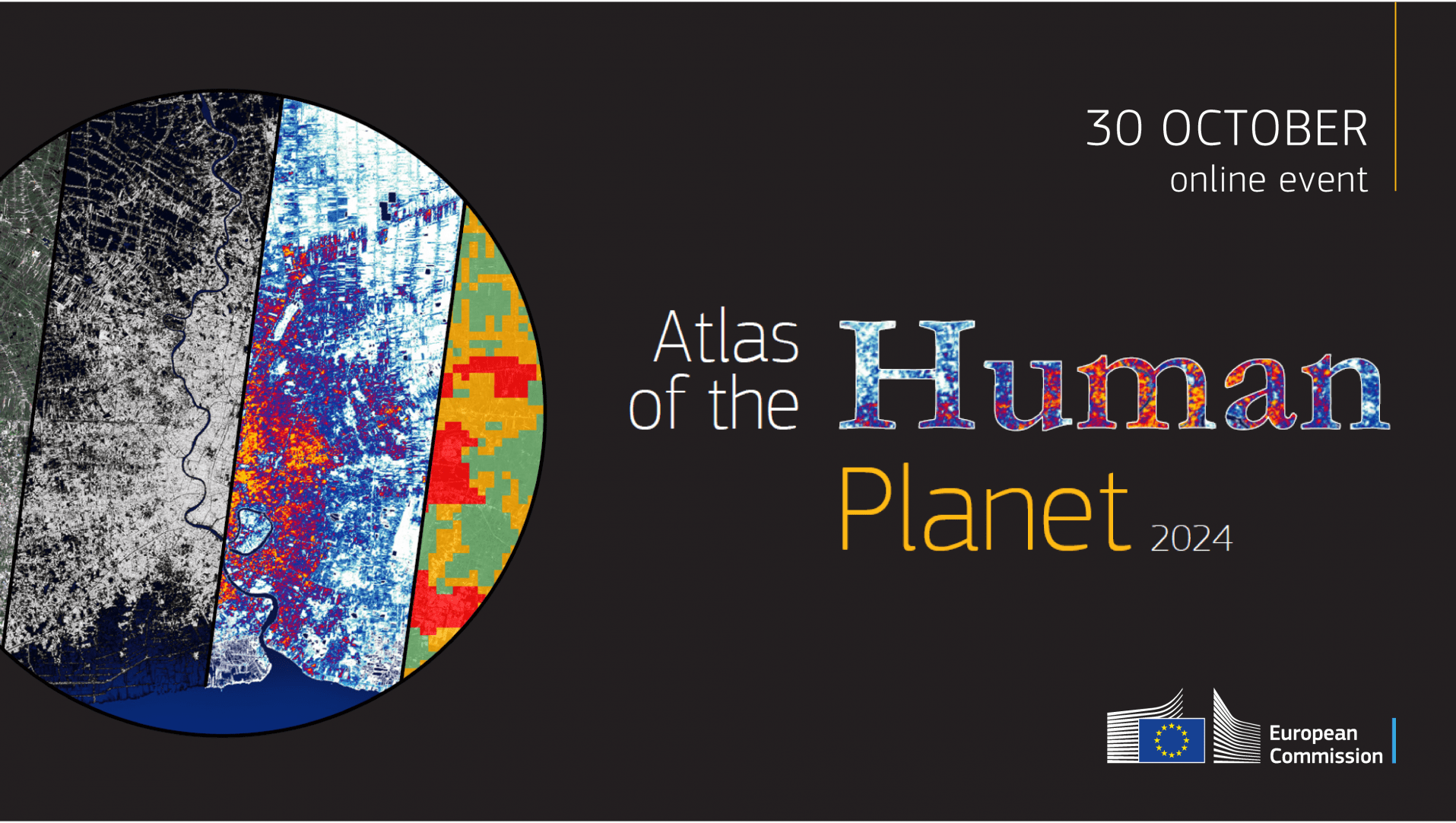EC - Atlas of the Human Planet 2024 launch event
🌍 Atlas of the Human Planet 2024 – Online Launch Event 🌍
Get ready to uncover the Atlas of the Human Planet 2024! Join our online launch event to explore how information on population and human settlements can help tackle a broad spectrum of societal challenges.
📅 Event Overview
Buildings, cities and population: for over 20 years, the Joint Research Centre has been mapping the human presence on Earth from space.
This new edition of the Atlas of the Human Planet offers an unprecedented 50-year perspective on population growth and urbanisation trends across the world.
🔍 What to Expect
Join our launch event via webstreaming to:
- Unveil the atlas' main findings: These include new insights on population growth, city development predictions, and the challenges of urbanisation and sustainable development.
- Explore how the atlas can inform security, environmental, and socio-economic policies: We will explore the spatial dynamics of demography, identify areas of concentration for people and resources, and uncover opportunities and challenges for the EU.
🗓️ Programme
10:00 - 10:10 – Opening
- Salla Saastamoinen, Deputy Director-General, Joint Research Centre
- Matthia Oel, Director of Directorate E - Societal Resilience and Security, Joint Research Centre
10:10 - 11:00 – Session 1: Findings from the Atlas
- Why the Atlas and what are the main findings – Daniele Ehrlich, Joint Research Centre
- The spatial patterns of cities – Thomas Kemper, Joint Research Centre
- Geography matters – Daniele Ehrlich, Joint Research Centre
- Exposure to hazards – Thomas Kemper, Joint Research Centre
11:00 - 12:00 – Session 2: Policy Context for the Human Planet Atlas 2024
- European/global urban development agenda
- Human development and international partnerships
- Climate and environment
- Disaster risk management
- EU Space Program
- Research and Innovation
Description
We live today in an age of fast societal transformation, where humans are having far-reaching impacts on planet Earth.
At the eve of a new Commission, the launch event of the Atlas of the Human Planet 2024 will be an occasion to discuss the tensions between the need for sustainable development of the global South while staying within the planetary boundaries.
The geography of humans on the planet defines many issues of security, environment, economics, and equality. The diversity of cities and rural areas also offers models for the change necessary to adapt to a changing climate and geopolitical landscape.
Knowing where people live and work is of key importance for efforts to address major current and future societal challenges. Realising these efforts presupposes that we have access to detailed information on human settlements and population, and that information must be global.
This demand for information is addressed by the JRC's Global Human Settlement Layer (GHSL) spatial database, which includes the key variables of population density, built-up surface, and settlement types, the latter including cities, towns and semi-dense areas, and rural areas.


